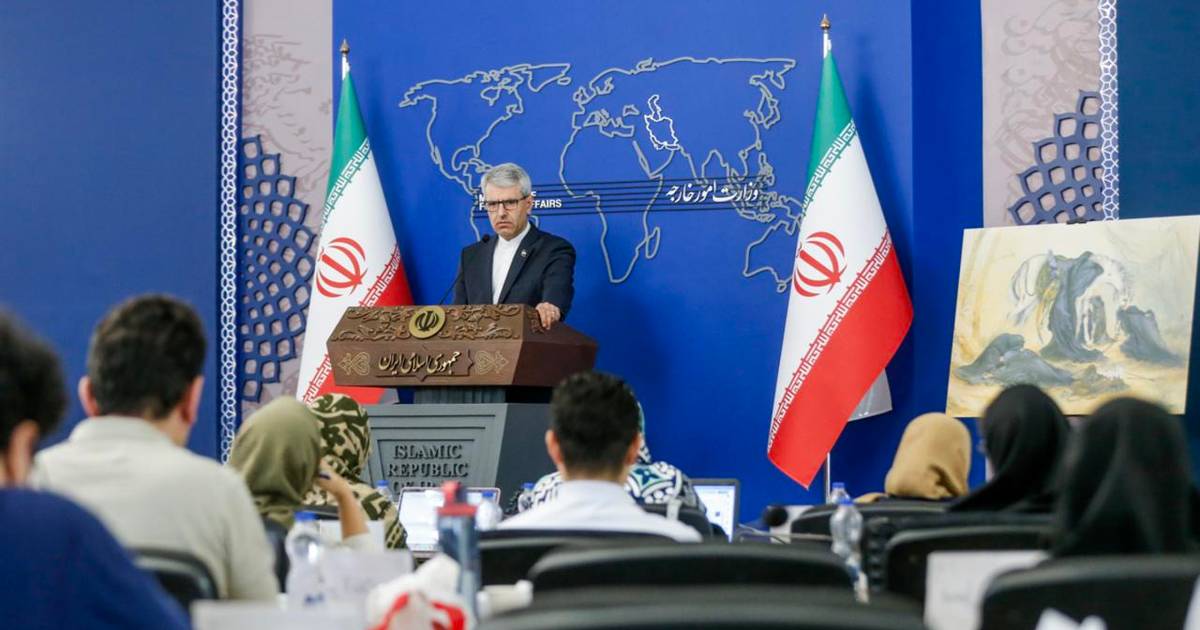Baghaei told reporters that Tehran remained ready to take steps to reassure the world about the peaceful nature of its nuclear program, but only if sanctions were lifted.
“We are prepared to adopt a series of measures to provide assurances about the peaceful nature of our nuclear program, conditional upon the removal of oppressive sanctions,” he said at his weekly press briefing.
Baghaei dismissed speculation about third-party mediation in its relations with the UN nuclear watchdog, saying, “Our relationship with the Agency is direct. Last week, one of its deputies visited Tehran. We also had discussions on drafting a cooperation framework,” he said. “Our representative in Vienna is in constant contact with the Agency.”
‘European have no right for snapback’
The spokesperson also criticized Britain, France, and Germany over threats to use the so-called snapback mechanism that could restore UN sanctions.
“The very act of Europe using this tool as a means of pressure against Iran is an illegal move,” Baghaei said.
“The three European countries failed to fulfill their obligations under the 2015 nuclear deal, and after the US and Israel attacked Iran’s nuclear facilities, they neither condemned it nor even tried to provide a logical explanation of their positions. We believe the three European countries have no right to use this mechanism.”
He added: “We never cut off negotiations with these three countries. They must decide whether they want to play a constructive role or a negative role aligned with the interests of the Zionist regime.”
Responding to a question on whether Iran might consider extending the deadline set by Britain, France and Germany in their recent letter to the United Nations, Baghaei said Tehran had no such plans. “The Islamic Republic has no program to extend the snapback mechanism,” he said.
His comments followed a letter sent last week by the foreign ministers of the three European powers — known as the E3 — to UN Secretary-General António Guterres and the Security Council, warning that they were prepared to reimpose international sanctions unless Tehran resumed nuclear negotiations with Washington and restored cooperation with the IAEA before the end of August, or accepted an extension.
Caucasus concerns
On regional issues, Baghaei said Iran closely monitored developments in the South Caucasus.
“We have been very clear that we are sensitive to the presence of extra-regional actors,” he said.
“We conveyed this explicitly to our friends in Armenia and listened to their explanations. For us, the unblocking of routes must not harm internationally recognized borders or contradict Armenia’s national sovereignty. We are monitoring the situation carefully and will raise concerns whenever necessary.”
Last week, US President Donald Trump brokered a peace deal between Armenia and Azerbaijan, which gives Washington leasing rights to develop the Zangezur transit route connecting Azerbaijan with its exclave, Nakhchivan. It will be renamed the Trump Route for International Peace and Prosperity (TRIPP).
Epstein case not linked to talks
Asked about reports linking the Jeffrey Epstein case to negotiations with Washington, Baghaei said Iran would not speculate.
“The so-called Epstein case is an issue that is not limited to the United States; many officials from different countries were implicated. We do not engage in speculation about the motives of US officials. What matters to us are their actions and Iran’s interests,” he said.
